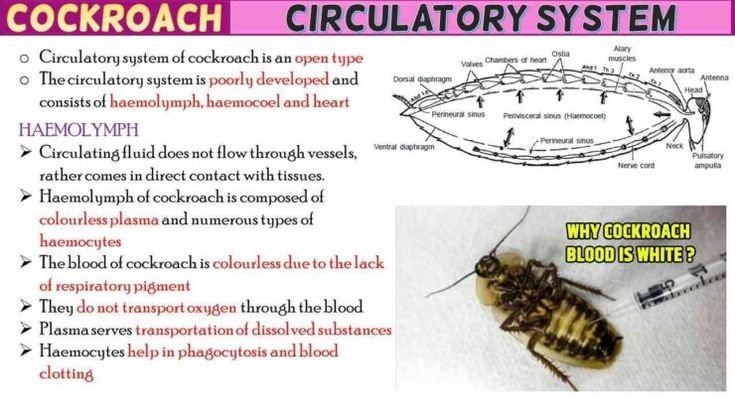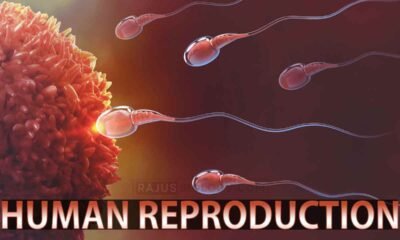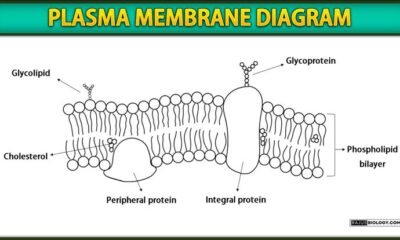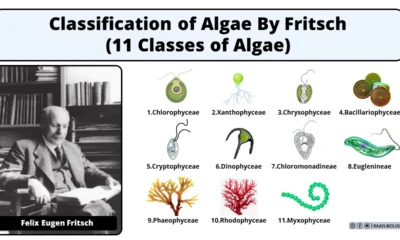Blog
Cockroach Circulatory System Short Notes

In this article we will discuss about the cockroach circulatory system
Cockroach Circulatory System
- Cockroach circulatory system is an open type
- The cockroach circulatory system is poorly developed and consists of haemolymph, haemocoel and heart
Haemolymph
- Circulating fluid does not flow through vessels, rather comes in direct contact with tissues.
- Haemolymph of cockroach is composed of colourless plasma and numerous types of haemocytes
- The blood of cockroach is colourless due to the lack of respiratory pigment
- They do not transport oxygen through the blood
- Plasma serves transportation of dissolved substances
- Haemocytes help in phagocytosis and blood clotting
Haemocoel
- Body cavity is filled with blood, thus it is called haemocoel
- Two diaphragm are present in body cavity
- They are dorsal diaphragm and ventral diaphragm. These have pores called fenestrae
- The diaphragm divides the haemocoel into three regions
- Dorsal sinus – pericardial sinus has hearts
- Middle sinus – perivisceral sinus has alimentary canal and fat body
- Ventral sinus – perineural sinus has nerve cord
Heart
- Elongated, contractile lying along the mid dorsal line of thorax and abdomen
- Cockroach has a 13 chambered tubular heart
- Heart is differentiated into funnel shaped chambers with ostia on either side. These pores act as valve.
- 12 pairs of triangular fan-like muscles found in the heart of the cockroach is called alary muscles
- Alary muscles involved in the role of contraction and relaxation of the heart
- Blood enters from pericardial sinus to heart through ostia when heart chamber relaxes
- Each heart chamber pumps blood into anterior chamber when it contracts, and thus blood reaches into head sinus
How Circulatory System Works?
- Heart pump blood into head sinus through a long tubule called anterior aorta
- Blood moves from head sinus to perineural sinus
- Fenestrae help blood flow from perineural sinus to perivisceral sinus
- Finally blood flows from perivisceral sinus into pericardial sinus
- In addition contraction of dorsal diaphragm also helps in rapid circulation of haemolymph
- The rate of heart beat in periplaneta is 49 beats/minutes
- Blood circulation in cockroach is completed in 5-6 minutes.

 Blog8 months ago
Blog8 months ago[PPT] Human Reproduction Class 12 Notes
- Blog8 months ago
Contribution of Indian Phycologists (4 Famous Algologist)
- Blog8 months ago
PG TRB Botany Study Material PDF Free Download

 Blog8 months ago
Blog8 months agoPlasma Membrane Structure and Functions | Free Biology Notes

 Blog8 months ago
Blog8 months agoCell The Unit of Life Complete Notes | Class 11 & NEET Free Notes

 Blog8 months ago
Blog8 months ago[PPT] The living world Class 11 Notes

 Blog8 months ago
Blog8 months agoClassification of Algae By Fritsch (11 Classes of Algae)

 Blog8 months ago
Blog8 months agoJulus General Characteristics | Free Biology Notes














